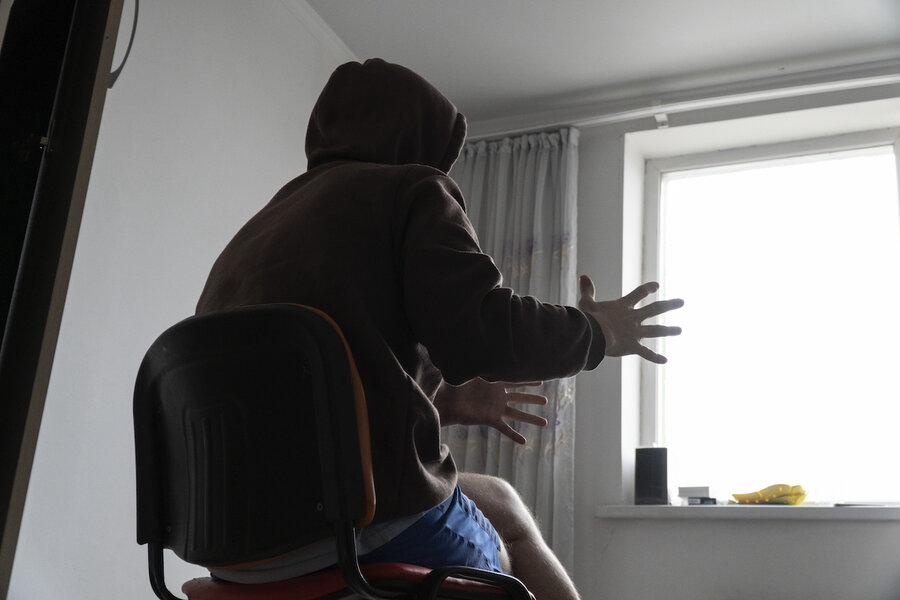These Russian soldiers refuse to fight Putin's war. But escape is nearly impossible.
Loading...
| Astana, Kazakhstan
If he could, Yevgeny would go back to 2013, the year he entered military school. He would stand sentinel at the gates of his school and tell all the boys go home, stay away, this place is not what it seems.
He wants them to understand three words: “You will die.”
A decorated hero of Russia’s war in Ukraine, Yevgeny made unimaginable sacrifices for a new chance at life. Like thousands of other Russian soldiers, he deserted.
But though he made it out of the trenches, the new life he found is not what he had hoped for.
The Associated Press spoke with five officers and one soldier who deserted the Russian military. All have criminal cases against them in Russia, where they face 10 years or more in prison. Each is waiting for a welcome from the West that has never arrived. Instead, all but one live in hiding.
For Western nations grappling with Russia’s vast and growing diaspora, Russian soldiers present particular concern: Are they spies? War criminals? Or heroes?
Overall asylum claims from Russian citizens have surged since the full-scale invasion, but few are winning protection. Policymakers remain divided over whether to consider Russians in exile as potential assets or risks to national security.
Andrius Kubilius, a former prime minister of Lithuania now serving in the European Parliament, argues that cultivating Russians who oppose Vladimir Putin is in the strategic self-interest of the West. Fewer Russian soldiers at the front, he added, means a weaker army.
“Not to believe in Russian democracy is a mistake,” Mr. Kubilius said. “To say that all Russians are guilty is a mistake.”
All but one of the soldiers spoke with AP on condition of anonymity, fearing deportation and persecution of themselves and their families. The AP reviewed legal documents, including criminal case files, Russian public records, and military identification papers, as well as photos and videos to verify their stories, but it was impossible to independently corroborate every detail.
Independent Russian media outlet Mediazona has documented more than 7,300 cases in Russian courts against AWOL soldiers since September 2022; cases of desertion, the harshest charge, leapt sixfold last year.
Record numbers of people seeking to desert – more than 500 in the first two months of this year – are contacting Idite Lesom, or “Get Lost,” a group run by Russian activists in the Republic of Georgia. Last spring, just 3% of requests for help came from soldiers seeking to leave; in January, more than a third did, according to the group’s head, Grigory Sverdlin. The numbers of known deserters may be small compared to Russia’s overall troop strength, but they are an indicator of morale.
“Obviously, Russian propaganda is trying to sell us a story that all Russia supports Putin and his war,” Mr. Sverdlin said. “But that’s not true.”
The question now is, where can they go?
German officials have said that Russians fleeing military service can seek protection, and a French court last summer ruled that Russians who refuse to fight can claim refugee status. In practice, however, it’s proven difficult for deserters, most of whom have passports that only allow travel within a handful of former Soviet states, to get asylum, lawyers, activists, and deserters say.
Fewer than 300 Russians got refugee status in the U.S. in fiscal year 2022. Customs and Border Patrol officials encountered more than 57,000 Russians at U.S. borders in fiscal year 2023, up from around 13,000 in fiscal year 2021.
In France, asylum requests rose more than 50% between 2022 and 2023, to a total of around 3,400 people, according to the French office that handles the requests. And last year, Germany got 7,663 first-time asylum applications from Russian citizens, up from 2,851 in 2022, Germany’s Interior Ministry told AP in an email. None of the data specifies how many were soldiers.
As they count the days until their legal right to stay in Kazakhstan ends, Yevgeny – and the others – have watched other deserters get seized by Russian forces in Armenia, deported from Kazakhstan, and turn up dead in Spain.
“There is no mechanism for Russians who do not want to fight, deserters, to get to a safe place,” Yevgeny said. He urges Western policymakers to reconsider. “After all, it’s much cheaper economically to allow a person into your country – a healthy young man who can work – than to supply Ukraine with weapons.”
This story was reported by The Associated Press.





